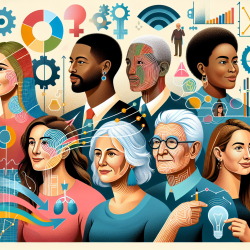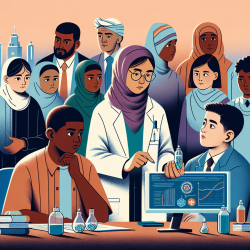Understanding Gendered Transitions in Education
The journey from adolescence to adulthood is a pivotal phase in life, marked by significant transitions such as entering the workforce, marriage, and parenthood. A recent study titled "Gendered Transitions to Adulthood by College Field of Study in the United States" sheds light on how these transitions are influenced by the field of study and gender. As practitioners in the field of speech-language pathology, understanding these dynamics can enhance our ability to support children and young adults in their educational and career paths.
Key Findings from the Research
The study utilized data from the National Longitudinal Survey of Youth 1997 Cohort, employing Cox proportional hazards models and multinomial logistic regression to analyze the transitions to adulthood among college graduates. Here are some of the significant findings:
- STEM and Business Fields: Men majoring in STEM fields tend to transition to full-time work, marriage, and parenthood earlier than their counterparts in other fields. Women in STEM, however, do not show the same advantage, often delaying marriage and childbearing. Conversely, women in business fields tend to have earlier transitions to full-time work and marriage, similar to men in STEM.
- Gender Disparities: The study highlights a persistent gender disparity in transitions to adulthood, particularly in STEM fields. While men in STEM benefit from earlier transitions, women face challenges balancing career and family roles.
- Economic Stability and Family Formation: Economic stability, often associated with STEM and business fields, plays a crucial role in facilitating transitions to marriage and parenthood. However, the study suggests that for women in STEM, this stability does not necessarily translate to earlier family formation.
Implications for Practitioners
As practitioners, these findings can inform our approach to supporting students in their educational and career decisions. Here are some actionable insights:
- Encourage Exploration: Encourage students, especially young women, to explore a variety of fields, including STEM and business, while providing support to navigate potential work-family conflicts.
- Promote Awareness: Raise awareness about the gendered nature of transitions to adulthood and the impact of field of study on career and family outcomes.
- Supportive Environments: Advocate for supportive educational and workplace environments that accommodate diverse life goals and reduce gender disparities.
Conclusion
The research on gendered transitions to adulthood offers valuable insights into how college field of study influences life trajectories. By understanding these dynamics, practitioners can better support students in making informed decisions that align with their personal and professional aspirations.
To read the original research paper, please follow this link: Gendered transitions to adulthood by college field of study in the United States.










